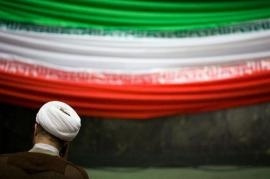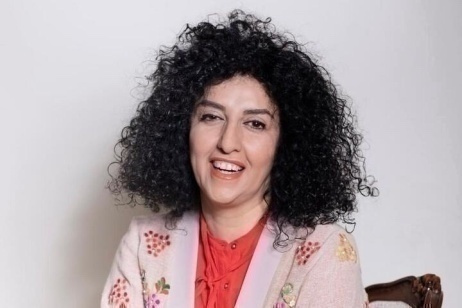
The most important political appointment in the Mid-East torn by the Syrian civil war and ravaged by misery, which will require a multibillion investment only to let the population restore its dignity, is not going to occur in or near Damascus, but in Iran. The presidential elections of Friday 14 June in fact represent a key passage not only for the future of the Islamic Republic, but also for the entire region.
These in fact are elections in which the name of the winner does not matter as much as the way he will be able to tackle the historic challenge that has already broken out blatantly. Hence the only true revolution that is going on before our eyes is the one between Sunnis and Shiites for the conquest of power in the Muslim universe, whose scene is Syria. In this revolution, Shiite Iran is no crowd actor. It is very proactive instead. And the outcome of vote will tell be able to tell us what we need to expect in the near future.
Before tackling the actual focus of my analysis, the vote in Iran, I would like to say that the civil war in Syria, as the most savvy of us had foreseen, has been changing its appearance. A factor of change has been the direct intervention, on the side of Bashar al-Assad’s loyalists, of the well-equipped militias of the Lebanese pro-Iranian Hezbollah. They are trained and determined, and are changing the outcome of the conflict. The reconquest the strategic town of Qusair, not far from the Lebanese border, is the most apparent signal of this, enabling Assad and his alawites – a Shiite sect – to breathe, and allowing us to understand the ambiguity of the disjointed and porous army forming the opposition front, which is supported by the Sunnis, starting from Saudi Arabia and Qatar, under the complacent and tolerating look of too many selfish Western observers.
Within this framework, Iran plays its game with its usual skilfulness. And precisely the impressive change in the regional political framework seems to have reduced the blow of the “Green wave”, which has not been mentioned in public discourse anymore for quite long. But the sacrifice of Neda, and the example set by the many youths who have taken to the streets to demand freedom, have not been hopeless. Quite the opposite, instead. The atmosphere is almost one of expectation, pending a fresh start bound to come about: youths in Tehran follow entranced also the protests of the young Turks of Taksim square, the protagonists of a free and democratic country who want to counter the arrogance of power, and particularly of their prime minister Recep Tayyip Erdogan.
This preamble is necessary to view the Iranian elections of 14 June properly. These seem to be strange elections, as a priori all their great protagonists seem (and I underline that they seem, later I will explain why) to be directly or indirectly bound to a defeat. The Council of the Guardians of the Revolution has received 700 bids to run for Presidential election, i.e. to the second post in the hierarchy of the country, the Presidency, taking the place of Ahmadinejad. Out of 700 bids, the Council has chosen 8. But the problem is not about the names of the 8 chosen candidates, but rather about some of the excluded. For example the strikingly offensive exclusion of Esfandiar Rahim Mashaei, right-hand man to the incumbent Ahmadinejad or rather, nearly his twin soul. Another striking exclusion is that of an elderly shark of Iranian politics, former President Ali Ahbar Hashemi Rafsanjani, earlier nearly inflexible and now almost a moderate. But the most surprising thing is that among the people pre-emptively excluded from vote there are two characters of the Iranian extreme right, who actually belong to the same group as the country’s most powerful man, Spiritual Guide Ali Khamenei. Yet, if you look more closely, nearly 4 out of the 8 chosen politicians are quite near Khamanei. And this, in case we still needed a confirmation to what we are saying, reveals the refined ability of the Iranian theocracy. In other words Khamenei wants one of his men to become President, but rather than a loyalist he prefers an ally, a man who can airily move deep inside the folds and the wrinkles of a complicated regime, which always seems to waver between Constitution and praxis.
This is why the first moves of the new President will matter more than his identity. The challenging that are awaiting Iran, starting from the ones of the nuclear threat or deterrent, are of the utmost importance. Furthermore, we should remember that Ahmadinejad is a secular, not a religious leader. Thus it is reasonable to say, making the necessary distinctions, that the religious faction will prevail. Maybe the coarse and unbearable propagandistic tirades that have characterized the lead of the incumbent will be reduced. And then we will have to assess the effects on the people, especially the younger generations. Precisely the survival of the “Green wave”.






